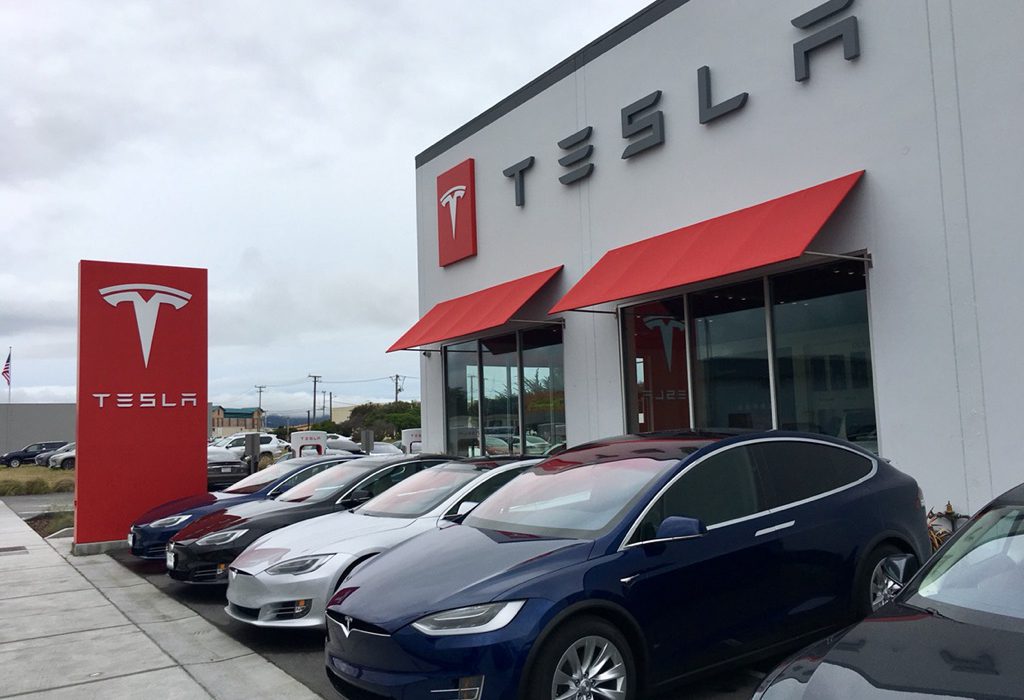Tesla Motors was founded by Elon Musk, Martin Eberhard, and Marc Tarpenning to prove that electric vehicles could be impressive. Today, the company is a world leader in selling cars online and has continued to generate new products with affordable costs and high performance.
Tesla’s mission is to hasten the world’s evolution to sustainable transportation and create the fascinating car company of the 21st century by motivating the world’s transition to electric automobiles.
Tesla is known for its focus on maximizing efficiency in every aspect of its operations, from production to supply chain management to customer delivery.
This emphasis on efficiency is driven by the company’s goal of accelerating the world’s transition to sustainable energy, which requires making electric vehicles and renewable energy products more affordable and accessible to a broader audience.
By continually improving its operations and reducing costs, Tesla can offer its products at competitive prices while maintaining high standards of quality and innovation.
SWOT Analysis of Tesla Motors
Strengths:
- Innovation and technology leadership in the electric vehicle industry
- Strong brand image and reputation
- First-mover advantage in the electric vehicle market
- High-quality and differentiated products
- Strong financial position and cash reserves
- Vertical solid integration, from battery production to car manufacturing
Weaknesses:
- High production costs and low production volumes
- Dependence on a limited number of suppliers for critical components
- Limited model range compared to traditional automakers
- There is little international presence in some markets
- Vulnerability to supply chain disruptions and changes in government regulations
Opportunities:
- Growing demand for electric vehicles and sustainable energy solutions
- Expansion into new markets, including international markets
- Partnerships and collaborations with other companies
- Development of new products and technologies, such as self-driving cars and renewable energy solutions
- Diversification into related industries, such as energy storage and solar power
Threats:
- Intense competition from established automakers and new entrants in the electric vehicle market
- Dependence on government incentives and regulations to support demand for electric vehicles
- Potential safety concerns and reputational damage from accidents or malfunctions
- Dependence on key personnel, including CEO Elon Musk
- Global economic downturns and fluctuations in currency exchange rates
PESTEL Analysis of Tesla Motors:
Political factors:
- Government support for electric vehicles includes subsidies, tax credits, and regulations.
- Trade policies and tariffs can impact the cost of materials and components used in manufacturing.
- Environmental regulations can affect Tesla’s ability to operate in specific markets.
Economic factors:
- The state of the global economy, including recessions or economic downturns, can affect consumer spending.
- Fluctuations in currency exchange rates can impact the cost of raw materials and components.
- Interest rates and inflation can impact Tesla’s capital cost.
Social factors:
- We are changing consumer preferences and values towards sustainability and environmental consciousness.
- Demographic shifts and urbanization can impact the demand for personal transportation and infrastructure development.
Technological factors:
- Rapid advances in battery technology and electric vehicle charging infrastructure.
- The increasing adoption of self-driving and autonomous vehicle technology.
- The development of alternative forms of transportation, such as ride-sharing and electric bicycles.
Environmental factors:
- We are increasingly concerned about climate change, air pollution, and an increasing demand for electric vehicles and renewable energy solutions.
- Environmental regulations and policies that can impact the manufacturing process and end-of-life disposal of Tesla products.
Legal factors:
- Intellectual property protection and legal disputes with competitors.
- Employment and labor laws, including regulations regarding working conditions and minimum wages.
- Product safety and liability laws can impact Tesla’s reputation and financial performance.
VRIO Analysis of Tesla Motors:
A VRIO analysis evaluates a company’s resources and capabilities to determine whether they are valuable, rare, inimitable, and organized to exploit opportunities. Here is a VRIO analysis of Tesla Motors:
Valuable:
- Tesla has strong brand recognition and a reputation for innovation, which provides a competitive advantage.
- The company’s vertical integration from battery production to car manufacturing allows for greater control over quality and cost.
- Tesla’s Supercharger network and other charging infrastructure provide a competitive advantage in the electric vehicle market.
- The company’s focus on sustainability and clean energy aligns with growing consumer demand.
Rare:
- Tesla’s electric vehicle and battery technology are unique and not easily replicated by competitors.
- The company’s focus on vertical integration sets it apart from traditional automakers.
- Tesla’s approach to selling cars directly to consumers is unique and has yet to be widely adopted in the industry.
Inimitable:
- Tesla’s patents and proprietary technology provide a barrier to entry for competitors.
- The company’s first-mover advantage in the electric vehicle market has given it a head start over competitors.
- Tesla’s brand reputation and customer loyalty are not easily replicated by competitors.
Organized to exploit opportunities:
- Tesla has a strong leadership team led by CEO Elon Musk, known for his vision and entrepreneurial spirit.
- The company’s culture of innovation and risk-taking supports the development of new products and technologies.
- Tesla’s focus on sustainability and environmental consciousness aligns with the growing demand for clean energy solutions.
Overall, the VRIO analysis suggests that Tesla’s resources and capabilities are valuable, rare, and inimitable, and the company is well-organized to exploit opportunities in the electric vehicle and sustainable energy markets.
Recommendations
Based on the analyses above, here are some recommendations for Tesla Motors:
Continue to focus on efficiency:
Efficiency has been a critical driver of Tesla’s success so far. The company should continue to optimize its operations, reduce costs, and improve productivity to remain competitive in the market.
Diversify product range:
While Tesla has had success with its electric vehicles, its product range still needs to be improved compared to traditional automakers. Tesla should explore opportunities to diversify its product range, such as developing electric trucks or expanding into other industries like energy storage or solar power.
Expand international presence:
While Tesla has a strong presence in the US and some European markets, the company’s international reach still needs to grow. Tesla should consider expanding into new markets, such as Asia and Latin America, to increase its customer base and revenue.
Address production and supply chain challenges:
Tesla has faced production and supply chain management challenges, leading to delays and increased costs. The company should continue to address these issues to improve efficiency and reduce costs.
Invest in research and development:
Tesla’s success has been driven by innovation and technology leadership. The company should continue to invest in research and development to develop new products and technologies, such as self-driving cars and renewable energy solutions.
Monitor regulatory changes:
Government policies and regulations can significantly impact Tesla’s operations and profitability. The company should closely monitor regulatory changes and adapt its strategy to mitigate risks or exploit new opportunities.
Bottom Line
Overall, the analyses suggest that Tesla has significant strengths and opportunities and some challenges and threats. The company’s brand reputation, innovation, and focus on sustainability. It provides a solid competitive advantage in the electric vehicle and renewable energy markets.
However, Tesla also faces challenges such as production and supply chain management, regulatory risks, and competition from traditional automakers and new entrants.
The bottom line for Tesla is that the company has tremendous potential for growth and success. Still, it must also address its challenges to maintain its competitive advantage.
Tesla should continue to focus on efficiency, diversify its product range, and expand its international presence. It should invest in research and development and monitor regulatory changes to mitigate risks and exploit opportunities. With the right strategy and execution, Tesla has the potential to continue to disrupt the automotive industry and play a leading role in the transition to sustainable energy.


